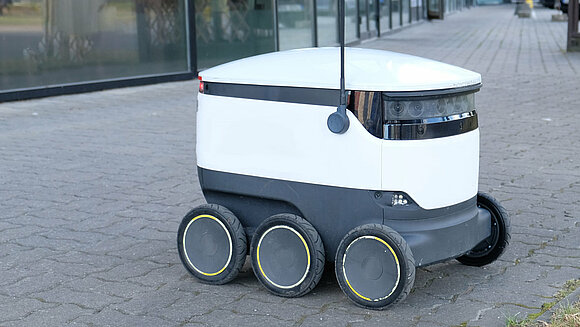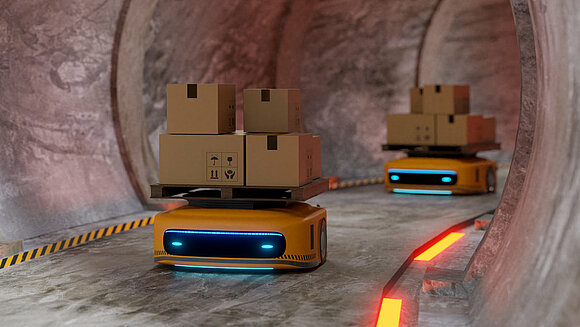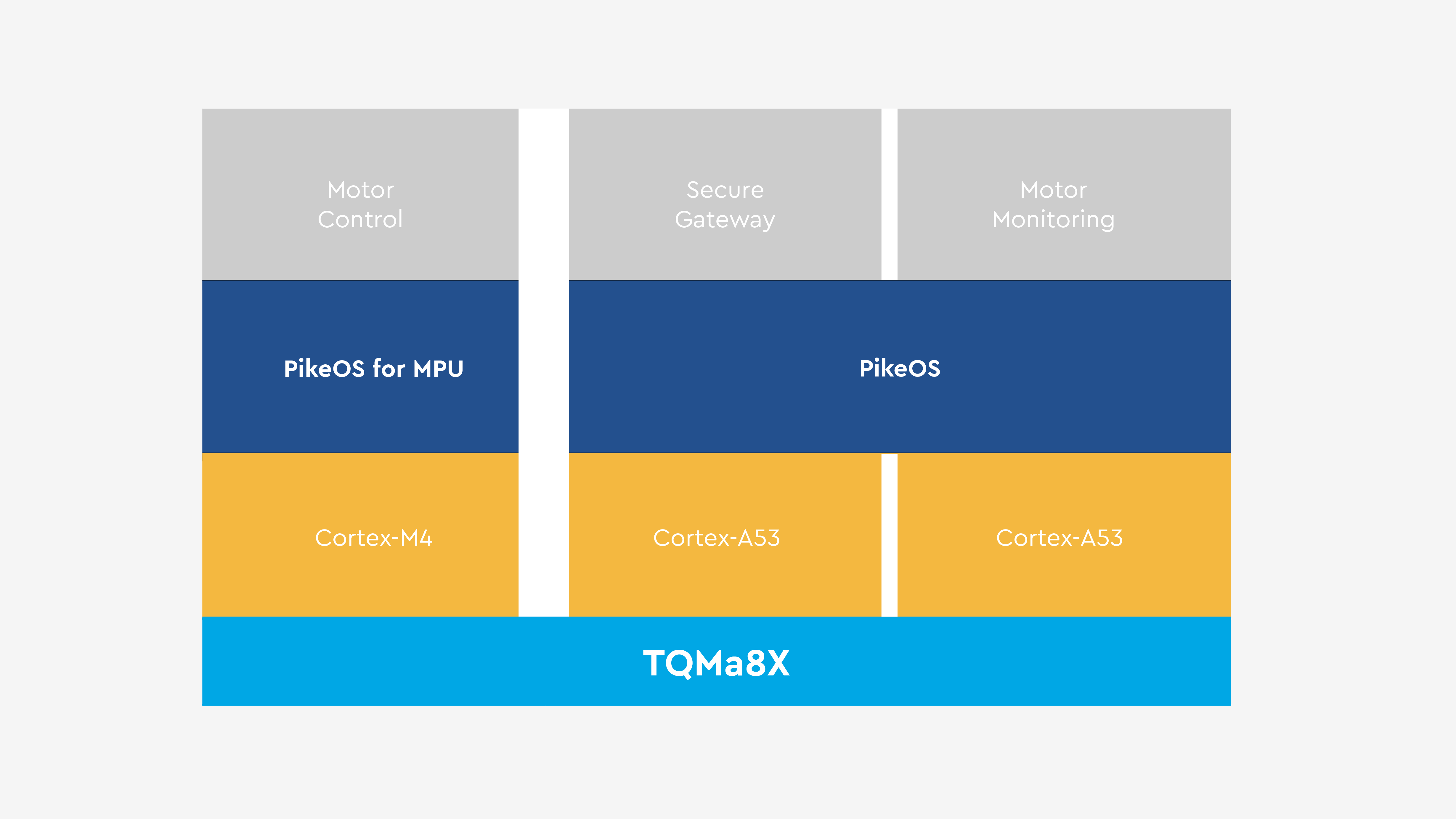TQ-Embedded news
All the latest news about TQ-Embedded and our products as well as press releases can be found in our news overview.
In Industry 4.0, work processes are digitized to make them even more reliable, cost-effective and efficient. Plant operators benefit from the data generated and, based on the knowledge gained from it, can maintain machines and entire plants in good time, order spare parts and collect information on the process in order to optimize it through restructuring. The interactions between the machines must be carried out in a cyber-secure manner, and the interactions between machines and humans must also be functionally safe.
A good example of this can be found in intralogistics: autonomous industrial trucks must transport goods in a functionally safe and cyber-secure manner. In doing so, they must precisely execute loading operations that offer little room for maneuver. They must also detect hazards and obstacles in their path and protect people and machines. Therefore, they need a real-time operating system to behave deterministically in order to comply with functional safety, which is confirmed by the safety standard that applies to the system. In addition, there are use cases in which embedded systems with sensors monitor processes, as in vision solutions, or systems with temperature sensors that guarantee stability in control loops (e.g. in blast furnaces). Handhelds for controlling plants and machines must also be functionally safe and cyber-secure.

In particular, the networking between the individual systems must proceed in such a way that operational technology (OT) and information technology (IT) go securely hand in hand and produce added value that provides information about overall equipment effectiveness (OEE) and enables application fields such as predictive maintenance that arise from the collected data.
With the combination of PikeOS, PikeOS for MPU and a system-on-a-chip (SoC) module from TQ Systems' i.MX8 series, such as the TQMa8X, embedded systems can be conveniently implemented for industrial applications. The TQMa8X offers full-chip hardware virtualization and 4K graphics support, safety functionality for the highest demands, real-time capability and support for CAN FD. This allows, for example, the implementation of an engine control unit (ECU) as required in autonomously moving industrial trucks. One or more applications can run in parallel per core. Thus it is possible to implement functionally safe and cyber-safe control, regulation, monitoring and data exchange on one module.

The real-time operating system and hypervisor PikeOS provides the basis for separating applications in the embedded system in a functionally safe manner in space and time. Functional safety can be achieved via SYSGO's Certification Kits, which are available for the industrial safety standard IEC 61508 for PikeOS to reach the highest safety level SIL 4. PikeOS is also pre-certified against many other safety standards such as ISO 26262, DO-178C, EN 50128 and EN 50657. With its pre-certification against the Common Criteria security standard at level EAL 5+, the PikeOS Separation Kernel (ver. 5.1.3.) also offers cyber security at the highest level.
On customer request after appropriate adaptation by means of Board Support Package, PikeOS for MPU can run on the microcontroller (Arm Cortex-M4), which is located on the heterogeneous TQMa8X, as a safely separated partition.
PikeOS for MPU takes over important tasks, where one prefers a microcontroller over a CPU for reasons of higher-level safety or manageability, among other things. This can be for example the deterministic processing of large amounts of data.
With the integrated development environment CODEO such embedded systems, which make highest demands on safety, determinism or real-time and consolidation, can be created within one tool. PikeOS and PikeOS for MPU do not require a large toolchain, but find a common roof on the Eclipse-based IDE CODEO.
A possible systematic example architecture could include the following applications:
